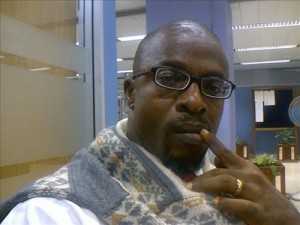 No one word divides camp in Nigeria today more than “corruption”. Such is the extent of the division that I doubt if both sides imagine the same processes, events, or people when they use this noun. There are excuses for this. Our problem with counting, for instance, (as with the recent vote for the chair of the Nigerian Governors’ Forum) is either an objective constraint (as a dyslexic person has with words), or one consequence of our openness to “persuasion”. Glib dismissals of corruption as a national problem, on the other hand, (as when a national minister is alleged to have described Nigerians as 99.99% honest) speaks to any of two possibilities. There is the outside chance that a “fun-loving people” (one of the many extant descriptions of us) simply refuse to be burdened by all references to the negative. Or, which is the same thing, that we are playing ostrich with this problem.
No one word divides camp in Nigeria today more than “corruption”. Such is the extent of the division that I doubt if both sides imagine the same processes, events, or people when they use this noun. There are excuses for this. Our problem with counting, for instance, (as with the recent vote for the chair of the Nigerian Governors’ Forum) is either an objective constraint (as a dyslexic person has with words), or one consequence of our openness to “persuasion”. Glib dismissals of corruption as a national problem, on the other hand, (as when a national minister is alleged to have described Nigerians as 99.99% honest) speaks to any of two possibilities. There is the outside chance that a “fun-loving people” (one of the many extant descriptions of us) simply refuse to be burdened by all references to the negative. Or, which is the same thing, that we are playing ostrich with this problem.
The possibility that the six sigma characterisation of the average Nigerian’s honesty might be right is, however, contradicted by daily experience of life in this country. The malaise associated with the impairment of our integrity, of our national virtue, has gotten subtler by the day. Nobody directly demands for a bribe any more. Processes are simply arranged in a manner that lets you know that there are ways round them. You could ask to know why the queue you are on has not moved one person in the last one hour, and yet applications for which the queue was originally set up are clearly being processed. Folk clutching the same forms as you simply walk in, spend a couple of minutes and walk out to much mutual “thank yous”. You would be lucky to find an answer. Offer the right consideration, though, and the resulting illumination is harsh.
Not many get reported for any of this. A lot less ever get punished. This leads to another Nigerian response. This one admits to an important role for corrupt practices in the national life. But argues that we are no different from others in this general respect. We differ only in the fact that we do not proceed against corrupt practices to the extent that these become the exceptions and not the rules. Interested in understanding why we appear more tolerant of corrupt practices than “others”? Essentially, this reasoning loops back on itself, and is invalid in this sense. Basically, therefore, we could ignore it in its many guises.
The ease with which we include what is to be proven as a central part of our proofs is not the bigger burden when the issue of corruption in Nigeria is discussed. Much direr is the growing analogy between the national position on corruption, and the condition of the mentally ill. Because the parameters of a mentally ill person are the only differences between him/her and one who is not similarly afflicted, it takes some persuading to get the former to check in for therapy. To agree that there is a problem at all. Once the admission of being unwell is reached, the chances for successful therapy are considerably enhanced.
Methinks, Nigeria is painfully at this “crisis”: in the proper sense of this noun as “an unstable or crucial time or state of affairs in which a decisive change is impending”. Where our insistence on not being a “corrupt people”, at least not in any sense that establishes us as different from “others”, has become a severe restraint on our ability and willingness to remedy things. “Denial” has its uses in managing psychological traumas. Whereas our original reaction to the prevalence and growing brazenness of corruption in the national life may have been to keep this unpleasant reality out of our conscious awareness, such is the nature of the problem today that we confront two choices on the matter.
We could identify our denial, and repress the emotions that are associated with this (including incredulity, anger, and a commitment to change) until with each such response to our denial, the topic becomes taboo. Or we put “corruption” and its manifold negative feedbacks on our society on the front burner, discussing it until it is resolved.
